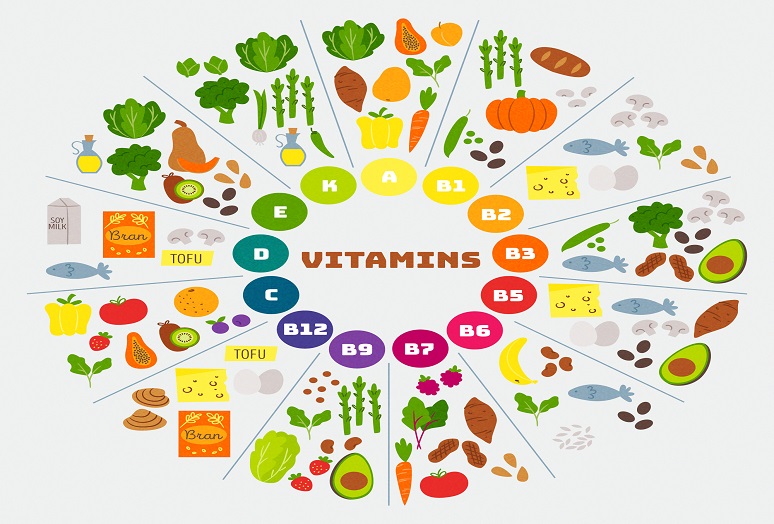In the world of nutrition, vitamins and minerals play a crucial role in maintaining overall health and well-being. These essential micronutrients are involved in various bodily functions, from regulating metabolism to supporting immune function. While a balanced diet can provide most of the vitamins and minerals we need, certain individuals may require additional support through food supplements. However, it's important to understand the difference between fat-soluble and water-soluble vitamins to ensure proper intake and absorption.
What is Fat-Soluble Vitamins?
Fat-soluble vitamins, as the name suggests, dissolve in fats and oils. They include vitamins A, D, E, and K. These vitamins are stored in the body's fatty tissues and in the liver, making them more concentrated than water-soluble vitamins. This storage capacity allows the body to utilize these vitamins for a longer period, sometimes for months. However, it also means that excessive intake can lead to toxicity.
What is Water-Soluble Vitamins?
Water-soluble vitamins, on the other hand, dissolve in water. They include vitamins B and C. These vitamins are not stored in the body in significant amounts and are typically excreted through urine. As a result, they need to be replenished regularly through diet or supplements.
Understanding Absorption and Deficiencies of Fat-soluble Vitamins
Absorption of fat-soluble vitamins
The absorption of fat-soluble vitamins occurs in the small intestine, aided by bile produced by the liver. These vitamins are then transported to the liver and incorporated into various body tissues. Water-soluble vitamins, on the other hand, are absorbed directly into the bloodstream and distributed throughout the body.
Symptoms of fat-soluble vitamins
Deficiency symptoms of fat-soluble vitamins may take longer to manifest as they are stored in the body. However, prolonged deficiency can lead to serious health issues.
Vitamin A deficiency can cause vision problems, night blindness, and skin disorders.
Vitamin D deficiency can lead to rickets in children and osteomalacia in adults, both of which affect bone health.
Vitamin E deficiency can cause neuromuscular disorders and vision problems. Vitamin K deficiency can lead to bleeding disorders.
Understanding Absorption and Deficiencies of water-soluble Vitamins
Symptoms of water-soluble vitamins
Deficiency symptoms of water-soluble vitamins may appear more quickly as they are not stored in the body.
Vitamin B1 deficiency (beriberi) can cause nerve damage, fatigue, and muscle weakness.
Vitamin B2 deficiency can cause skin lesions, fatigue, and vision problems.
Vitamin B3 deficiency (pellagra) can cause skin lesions, diarrhea, and mental disorders.
Vitamin B6 deficiency can cause anemia, skin disorders, and neurological problems.
Vitamin B9 deficiency (folate deficiency) can cause anemia, neural tube defects in newborns, and cognitive decline. Vitamin C deficiency (scurvy) can cause fatigue, bleeding gums, and joint pain.
Food Sources and Supplementation
A healthy and balanced diet generally provides adequate amounts of fat-soluble and water-soluble vitamins. However, certain individuals, such as those with malabsorption conditions or limited dietary options, may benefit from food supplements. It's important to consult a healthcare professional to determine individual vitamin needs and recommend appropriate supplementation.
In Conclusion
Understanding the difference between fat-soluble and water-soluble vitamins is crucial for making informed decisions about food and supplement intake. Fat-soluble vitamins are stored in the body, while water-soluble vitamins need to be replenished regularly. Maintaining a balanced diet and consulting a healthcare professional can help ensure adequate vitamin intake and overall health.

